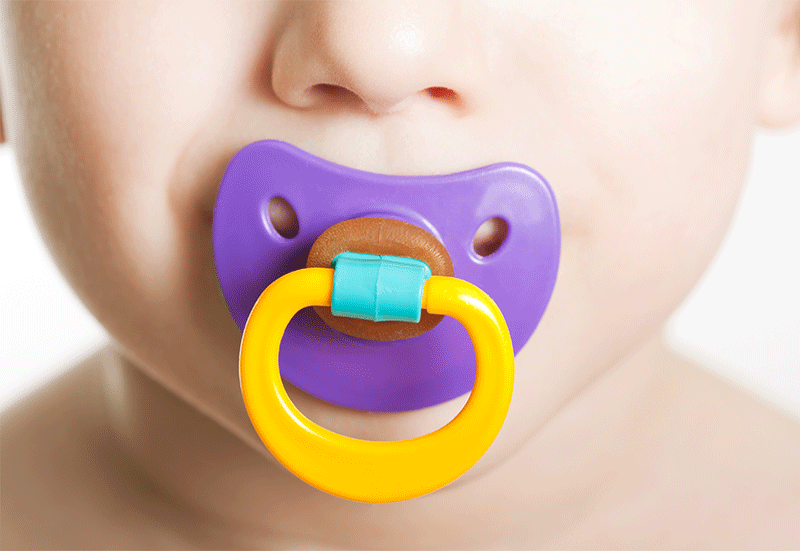The Truth About Pacifiers and Dental Health
For centuries, parents have used pacifiers, also known as soothers, to calm their infants. But while pacifiers have been shown to lower the risk of Sudden Infant Death Syndrome (SIDS), extended pacifier use can lead to dental problems. Keep reading to learn the truth about pacifiers, and why you should wean your little one sooner rather than later.
Long-Term Effects of Pacifier Use
In their first two years of life, children experience rapid growth. During this time, anything held in a baby or toddler’s mouth for extended periods of time can affect oral development. When babies and toddlers rely on pacifiers, their jaws can grow around the pacifier. As you can imagine, the overuse of soothers can cause teeth to become crooked. They can also lead to bite problems, including overbite, underbite, and crossbite. These issues are commonly referred to as “pacifier teeth.”
In addition to causing pacifier teeth, the inappropriate use of pacifiers can lead to tooth decay, cavities, and receding gums. For infants up to 6 months of age, the American Dental Association advises the use of a clean, unsweetened pacifier. That is if parents choose to use one at all. Pacifiers coated with sugar, honey or corn syrup only encourage tooth decay. Parents should also avoid placing pacifiers in their own mouths before giving them to their babies. Doing so can transfer bacteria to your child, which can cause tooth decay and cavities.
Responsible Pacifier Use
If you choose to use a pacifier, there are a few ways to help prevent dental problems down the line. First, make sure to clean the soother before giving it to your baby. This includes disinfecting the pacifier after it falls out. You should also replace pacifiers that become discolored, cracked or sticky. Worn-out pacifiers are more difficult to clean and may conceal harmful bacteria. Lastly, you should restrict pacifier use to naptime and bedtime. This helps cut down on excessive use during the day.
Weaning Your Child off Pacifiers
In most cases, it’s beneficial to begin breaking the pacifier habit after 6 months of age. However, some babies and toddlers may resort to thumb-sucking, which can be even more harmful to dental health. That’s why the American Academy of Family Physicians recommends pacifiers over thumb-sucking.
Nevertheless, studies confirm that children who use a pacifier or suck their thumbs after two years of age are more likely to experience pacifier teeth and other dental problems. The effects are even more significant after 4 years old. Therefore, you should try to wean your child off pacifiers by at least two years old to prevent dental issues.
When kicking the soother habit, you’ll want to use positive reinforcement. Consider giving your child a tooth-friendly treat or sticker for each day he or she goes without a pacifier. Because pacifiers are often used for self-soothing, you should also avoid stressful situations.
Now that you know the truth about pacifiers, it’s time to put what you’ve learned to the test. If your child is older than two years old and still uses a pacifier, get in touch with Tooth Fairy Smiles. As a pediatric dental practice, we have extensive experience working with children, from infants to teenagers. Depending on your child’s age and oral health, we can recommend solutions to stop pacifier use once and for all.
Share